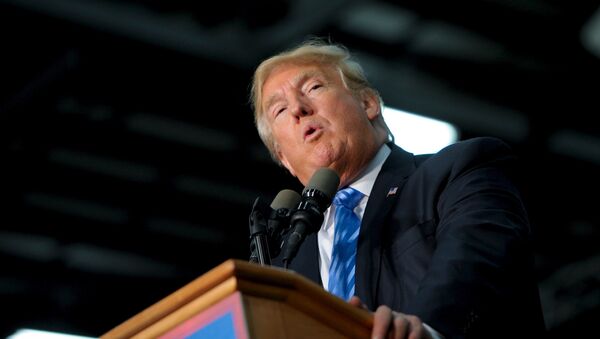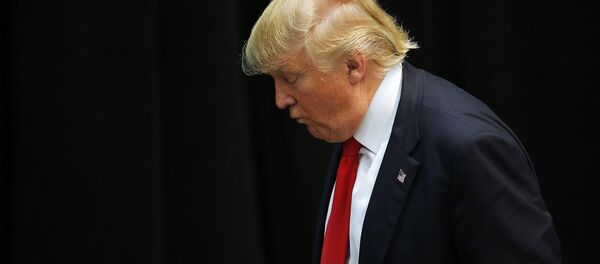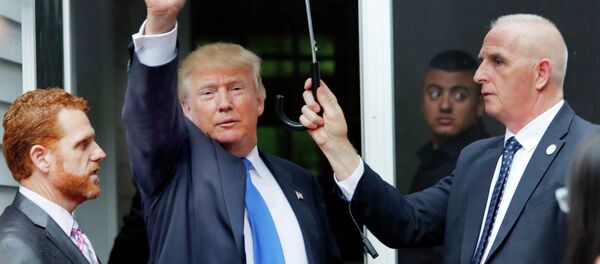Throughout his campaign, Trump has called for mass deportations of Muslims and Latin Americans, at one point infamously claiming that he would build a wall on the border with Mexico if elected.
Diamante offered that Trump makes these statements because "He wants to maintain the people who are supporting him right now, which are whites that are making less income than most… he doesn’t want to lose that base, and he’ll lose it if he tries to change his position on immigration. So he’s going to maintain a strong stance on immigration."
The lawyer added that Trump uses racist assumptions about Latin Americans to paint a picture of innate criminality, an image that does not square with reality.
"There’s an estimated 11 or 12 million undocumented people living inside the United States," he claimed. "Of those, there are about 5 million that would’ve benefited from Deferred Action for Parents of Citizens, called DAPA. This was only available to people who didn’t have felonies and had less than three misdemeanors. Therefore we’re not talking about rapists and murderers, we’re talking about family people who came to the United States and are working."
The lawyer also debunked the myth of immigrants leaching from the US without contributing anything.
"A lot of these folks, unlike the misinformation that’s out there, they’re paying taxes and a lot of them are not receiving any funds back," he explained. "There’s an inclination to make people believe that these people are receiving benefits from the US government, but, in reality, there’s a lot of benefits that should be paid back to them, since they’ve been paying into the IRS and not getting anything back, and they won’t get anything until they become lawful, permanent residents."
Loud & Clear Host Brian Becker noted that conservative Republican President Ronald Reagan passed the Legalization Act of 1986, granting amnesty to 3 million undocumented people, but Democratic President Barack Obama has deported more people than any other president in the country’s history. He asked Diamante about the trajectory of the immigration issue in American politics.
Diamante responded, "What happened after [the Legalization Act was passed] there were individuals that were applying for amnesty that had committed fraud, so this created a buzz among people who were against it to begin with… [and] there were mass restrictions on immigration and punishment for those that had committed crimes. So hundreds of thousands of people have been deported because of the changes in 1996, and it took years for the Supreme Court to render decisions that would’ve prevented a lot of these folks from being deported to begin with, but it was too late."
He explained that there is a long history of scapegoating immigrants in the US. He gave examples of the Chinese Exclusion Act of 1882, the mass deportations of Mexicans during the Great Depression, and the internment of Japanese Americans following the attack on Pearl Harbor.
"People have been migrating since the beginning of time," he said, "and we have borders, now the question is, do we have to fortify those borders, or should we rethink why we have borders, which is to control people doing what they do naturally, which is move when they’re trying to find a better life and benefit their families."







